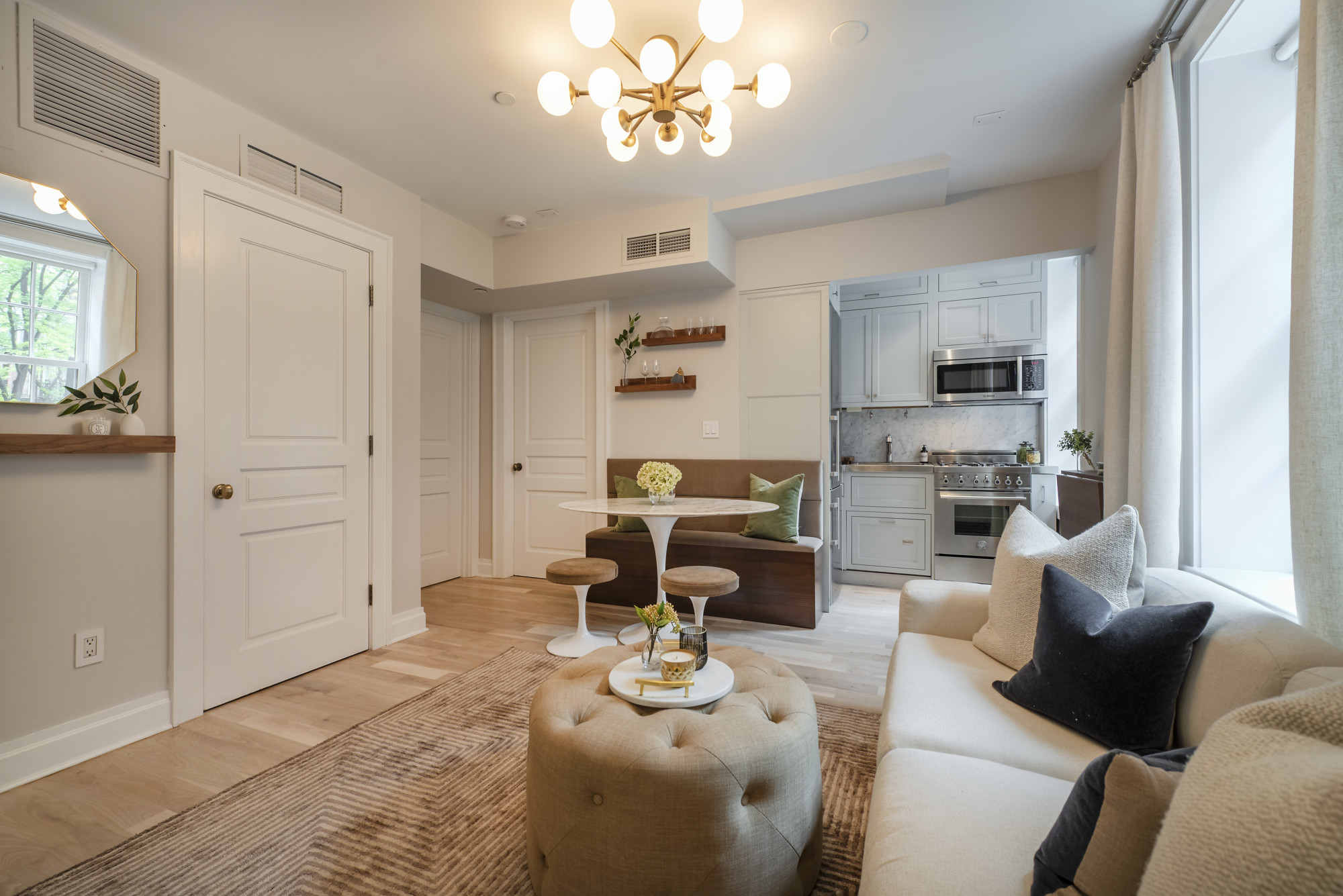Table of Contents Show
When buying your first condo in New York City, you need to approach it as buying your first home. There is no need to stretch yourself financially, and you can buy one with as little as 20% down. It is also advisable to obtain a fixed-rate mortgage so your monthly expenses remain stable. To be conservative, don’t spend over 35% of your pretax earnings on mortgage payments, property tax, and home insurance combined.
If you’re a first-time buyer in your 20s or 30s, it might be tempting to stretch yourself financially. However, you predict your income will steadily rise in the coming years to cover all costs.
Things can changeThings can change
Keep in mind that things can change. For instance, if you start a family, you quickly find yourself boxed in paying down a jumbo mortgage. So, when planning for the future, come up with a budget that considers your mortgage and latent variables. Even if you don’t plan on having children, it’s better to remain cautious.
Who’s to say that unemployment won’t spike in your industry or that you won’t have a mid-life crisis that prompts you to change careers? Even professionals and government workers who feel their income is protected need to plan for the possibility of being financially derailed by unexpected circumstances.
How Condos OperateHow Condos Operate
The developer or sponsor must provide an offering plan when a building is built as a condo or converted into one. This must be submitted to the state attorney general’s office and outline how the building is built. For example, this document will detail the percentage of common elements for which each unit is responsible. It will also specify where a condo unit ends and where the common elements begin. Also, they must provide other documents, including the condominium bylaws and declaration.
House rules vary from building to building. For example, units owned in some condos include the interior walls’ surface and everything that surfaces wrap around. In others, units can extend as far as the center of a landing/hallway. Also, New York City condos are run by a board of managers elected by the condo owners during the annual meeting. In some condo buildings, each apartment gets just one vote. But in others, the number of votes depends on the percentage of common elements owned. This, in turn, is assessed according to unit value, location, and size.
Condo BoardsCondo Boards
Unlike with co-ops, the condo board does not have the power to reject a prospective buyer, and the only way the board can head off a deal is to step in and buy the property themselves. Fortunately, the right of first refusal is seldom employed because it requires a vote from all other unit owners. Not to mention that the board must come up with the money to buy the unit. That said, it’s not unknown to happen, and some court cases have revolved around condo boards’ actions.
Courts have ruled that the board cannot be held liable for the operating decisions as long as their board members operate in good faith. Still unresolved in the courts is whether or not the board can assess a flip tax on selling their units.
Pros and ConsPros and Cons
Condos are flexible and affordable options for buyers, but there are distinct differences between condos and single-family homes. Here are some things to consider if you’re considering a condo. Storage space varies wildly in condo units. Some buildings have storage cages in the basement, but many don’t. A condo may not be the best choice if you need a lot of storage space. Private outdoor space is also rare in New York City condo developments.
This is great if you dislike maintaining a lawn, but you may regret your condo purchase if you love to garden or lounge outdoors. If outdoor space is essential to you, consider purchasing near a park, a condo with a balcony, or a building with a roof deck.
Convenience and AmenitiesConvenience and Amenities
Most condo developments have luxurious amenities like on-site gyms, communal outdoor spaces (in some cases, swimming pools), community lounges, and playgrounds, which are very attractive to a particular homebuyer type. But remember that the more amenities you have, the higher your monthly common charges will be. So choose your amenities wisely by deciding on what is vital and not. In addition, almost all condo developments have an on-site maintenance crew that handles any repairs to your home and maintains the common areas.
Condos usually offer enhanced security, such as a doorman, multiple secure entry locks, and sometimes round-the-clock security personnel. They often arrange deliveries to your home and even let approved workers, such as cable or phone technicians, into your condos. Helpful in the event of an emergency.
You’ll pay common charges and dues to cover the costs associated with the amenities and security, even if you don’t use them all. The condo board sets the standard common charge fees, often increasing periodically. These fees will be on top of your monthly mortgage payment.
Resale valueResale value
Condo units are very similar, so the size of the unit, views, finishes, and appliances often determines your asking price. The resale price on your unit often hinges on what other condo units have sold for in your building. Condo living is governed by the condo association and house rules and regulations they adopt, although you will have a vote in most, For example, some. Some condo boards restrict pets or noise levels.
Before purchasing a unit, you read all your condo rules and regulations. Condo residents live close to one another. As such, it’s a good idea to meet your neighbors before you buy them.

